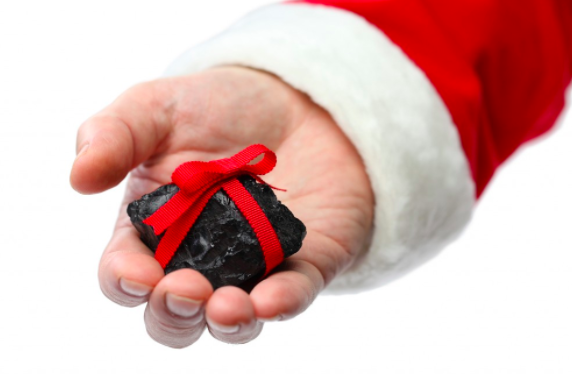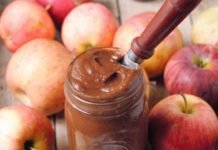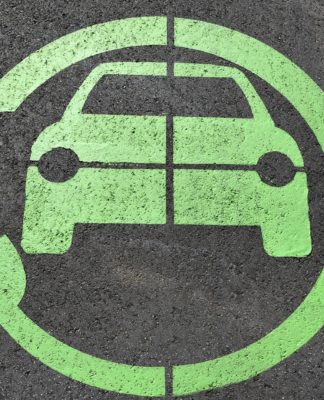
Charcoal: Not just for naughty children at Xmas time. Consuming and applying activated charcoal has become all the rage, found in everything from fancy lattes to detox remedies and facial cleansers. Powdered charcoal is similar to what you’d use for BBQ’s; a form of carbon processed to have small pores that increase the surface area available for adsorption or chemical reactions, meaning charcoal attracts positively charged toxins and gas.
Its taste is reminiscent of smoke, ash, and campfire, and will surely have everyone begging for more…
Well, maybe not.
So, why would anyone consume something so foul and dirty-tasting you ask? Must be the health benefits. But are the health benefits really real? Not as much as you might think, and often do considerably more harm than good.

Health claims debunked
1. Charcoal rids the body of toxins
There’s some truth to this, but it is not what you think. Used as a treatment in ER settings, charcoal is only given in extreme settings to treat specific drug overdoses and acute poisoning. It’s been published in over 50 studies as a potential treatment to only a certain set of drug overdoses, if given orally within minutes to an hour of dose. However, it still remains a controversial treatment for most drugs and toxic substances.
The popular thought is that the charcoal soaks up the toxins before it becomes absorbed by the body. Some people have translated this modality of thought to other toxins within the entire body, meaning, that when charcoal is consumed, it pulls out all the unhealthy substances. However, there is no scientific evidence to support this statement, as activated charcoal doesn’t purify the blood. It only works on the stomach, and just minutes to an hour before a toxin is consumed. So if you’re looking to detox, this is not the answer. Drink plenty of water and let your kidneys and liver detox for you instead.
That is, after all, their job.
2. Charcoal whitens teeth
This is unproven. The claim is that when mixed with a wee bit of water, brushed thoroughly, then spat out, you’ll have a stain-free smile. No studies, as of yet, have proven this actually works, and other professional dentistry boards have even made strong statements of concern: Dentists say activated charcoal could actually become embedded in cracks or small holes in the teeth; the exact opposite of whitening.

You be the judge.
3. Charcoal acts as a stomach aide
Maybe, but shown only in two small studies totaling 105 subjects (with 5 people claiming it didn’t work), who stated their gastrointestinal pain improved. In these studies, magnesium was added to activated charcoal, suggesting a synergistic effect of the two improved intestinal gas. However, take note on the the number of subjects: 105. That’s a very, very small sample size, and is not a convincing number. Interestingly, other studies found that 20% of people who ingested activated charcoal vomited after consuming it. Womp womp. The point is to reduce stomach aches, not worsen the pain.
4. Charcoal is good for your skin
There is no scientific evidence to support that charcoal helps your skin even a little bit, but it also hasn’t been found to be harmful either; most research has been conducted on ingesting rather than applying.
Dermatologists haven’t found any negative effects of using charcoal on your skin, but haven’t found any quantifiable benefits either.
You can be the judge on this one as well.
Long-term effects of charcoal
Side effects of long-term use are serious, so be aware of the following when taking activated charcoal by mouth:
- Risk making medications (like birth control) ineffective, as charcoal can absorb them instead of your body.
- Black stool
- Black tongue
- Gastrointestinal blockages
- Vomiting/nausea
- Electrolyte imbalances (caused when taken in the presence of some medications)
- Diarrhea or constipation
- Nutrient deficiencies >> Malnutrition
Still not convinced activated charcoal may do more harm to your body than good? Be sure to stay tuned to new research as it comes out – peer reviewed articles, and sites like eatright.org and Science Daily will have unbiased information not looking to make a buck.
I know it looks pretty (Instagram #charcoallatte and see), and people like Dr. Axe 🙄 🙄 🙄 will tell you it’s good for you, but be smart and do your own research when putting things into your body.

Unless your child (or partner) is misbehaving around the holidays, I’d save the money and spend it something truly special this holiday season – something, that is, other than charcoal. You’ll be doing your gut, and pocket book, a huge favor.
Read this next: 5 tasty foods for a happy and healthy heart
















